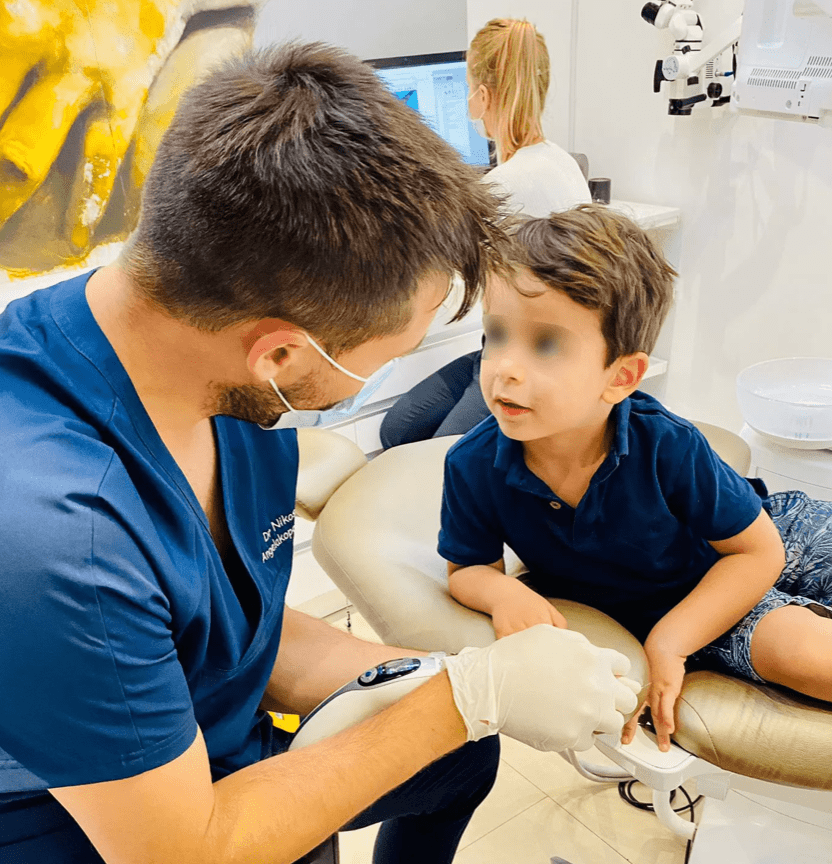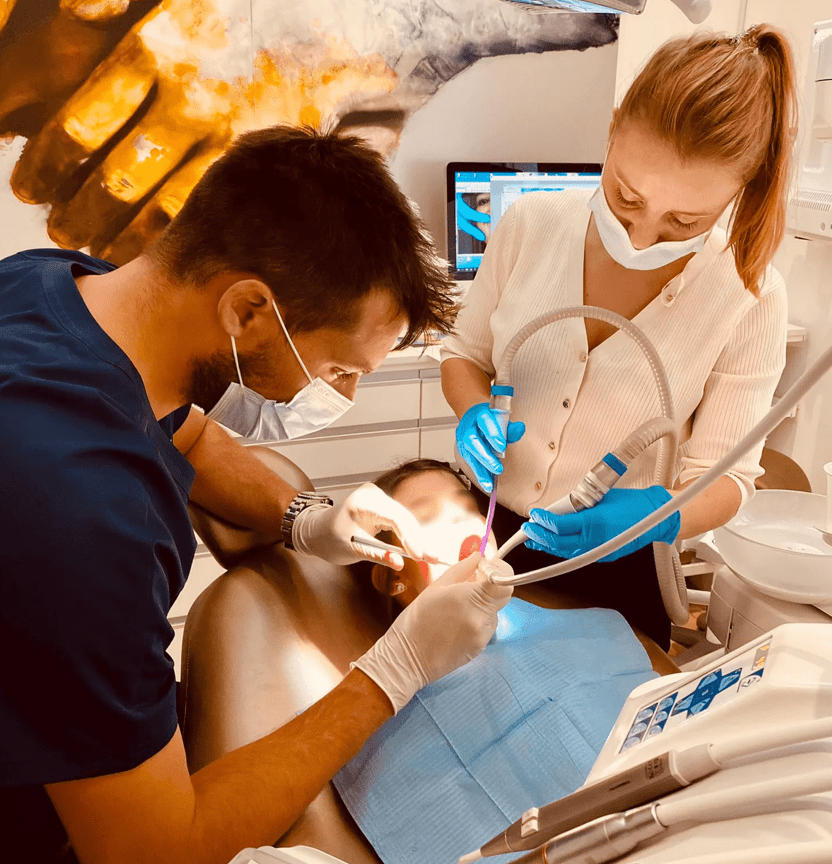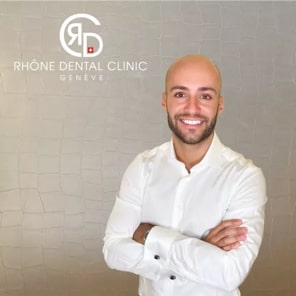Gingivitis in children
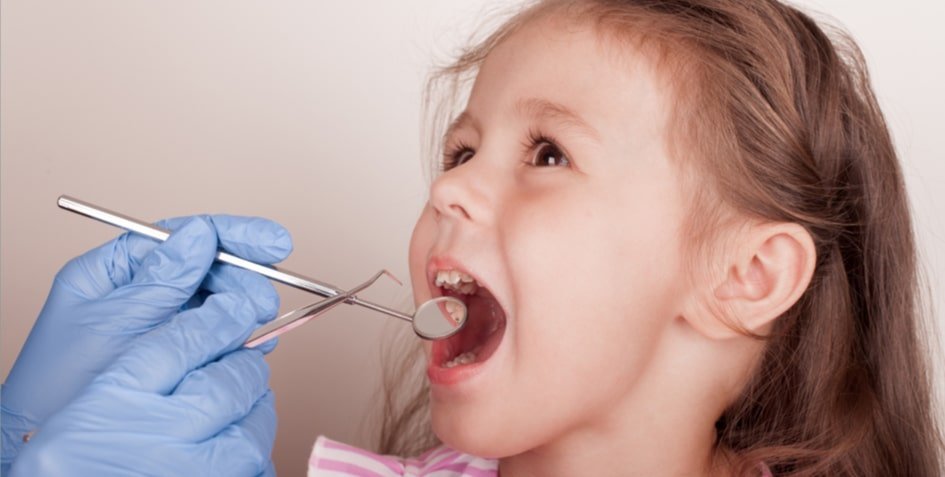
Taking care about the cavity should begin at an early age. Be careful about the teeth and gums means ensuring that the mouth and the body in general are in perfect health. Not cleaning the teeth, mouth and gums gives plaque the opportunity and time to cause damage such as tartar, cavities and gingivitis.
What is gingivitis?
When we talk about gingivitis at Rhône Dental Clinic, we are referring to an inflammation of the gums that has swelling, spread of herpes in the mouth, stomatitis, redness and sores, and bad breath. The main cause of this condition is bacterial plaque in the mouth.
A bacterial plaque is a colorless or yellowish film that settles on the teeth four hours after brushing, but it is worth remembering that plaque settles on the teeth even if the mouth does not come into contact with food, sugary drinks or other substances such as medications. Teeth attacked by plaque become covered with a rough, sticky layer that, although colorless, is often visible to the naked eye and easily felt.
It is precisely the buildup of plaque that can lead to many problems, including tartar, cavities and gingivitis. If plaque is not removed properly, bacteria settle in the gum line and form natural periodontal pockets. Such as tartar or cavities, gingivitis is not an incurable problem. However, if neglected, it can lead to more serious damage such as periodontitis or, worse, pyorrhea.
Signs of gingivitis:
The problem with gingivitis is that it does not cause immediate acute pain. For example, with cavities, and therefore the problem has plenty of time and opportunity to get worse.
Soft tissue begins to inflame 24 hours after the first deposits. It causes bleeding as the antibody-carrying blood builds up, making the blood vessels more permeable, which allows blood to flow out. The tone of the gums then decreases and the gums do not attach well to the tooth. The latter begin to recede due to plaque settling at the base of the tooth and the neck is exposed.
Gingivitis leads to the formation of gingival pockets, small spaces that open the way for bacteria to reach the deeper periodontal tissues and can even reach the jawbone.
We are talking about periodontitis, which can lead to the necessary extraction of the tooth, or even its spontaneous fall out.
It will therefore be important to pay special attention to a regular inspection of the child’s oral cavity and to check for swollen or reddened gums.
The reasons of gingivitis
It is obvious that the main reason of gingivitis for the children is the incorrect or non-existent cleaning of the teeth, cheeks and tongue. It is known that children tend to shy away from personal hygiene care: especially at an early age, they don’t want to get away from play and miss spending time in the bathroom cleaning their body and mouth. However, it’s important that mom or dad spend time teaching them the importance of daily cleaning for their body’s well-being.
Gingivitis is more likely to occur if the teeth are brushed incorrectly or too infrequently. Furthermore, in the case of baby teeth, they are too tight, which necessarily implies the use of braces. This factor can also be one of the reasons of infection: in this case, the rotation of the teeth favors the accumulation of dental plaque and therefore the development of bacteria.
The important thing is to get children used to having a clean and fresh mouth from the beginning,take them away periodically to the dentist. It is a person that they should get to know as well as the doctor to not be afraid.
Treating gingivitis
The treatment of gingivitis in children is available, as well as the treatment of plaque.
In order to avoid the risk of gingivitis, it is necessary to pay attention to oral care by brushing teeth and gums daily. A correct brushing, including the tongue, with a soft-bristled toothbrush, correct use of dental floss and brushing. Moreover a rinsing with a mouthwash or even diluting it in water to create solutions for daily use.
In addition a periodic check-ups at Rhône Dental Clinic, to prevent gingivitis or to try to contain it , certain precautions are therefore important:
- The toothbrush have to be used for gingivitis or even just for prevention should always be used after finishing eating and should have soft bristles.
- A toothpaste for sensitive gums and a chlorhexidine mouthwash. It will be prescribed by your dentist for your children and can be used for periods that are not too long.
It is clear that in lot of serious cases (i.e. those that precede the above-mentioned problems and also involve fever or even redness of the throat) it will be necessary to resort to the effective care of the dentist specialized in gums. The latter will also be able to intervene with a treatment including antibiotic therapy.
Do you want to know more about the treatment of Gingivitis? During your consultation, your particular situation will be discussed in more detail. We encourage you to ask any questions you may have. If new questions arise after your consultation, please feel free to contact the clinic. During the initial examination, we will be able to help you make your choices and initiate your care. Moreover, we can define the treatment plan, the expected duration of treatment and the approximate cost.
Stop by the office for a visit, or call us at 022 310 50 77 to arrange a consultation with our dentists for your child!
Children talk about braces! They ask a lot of questions about the treatment with their imaginations. I will take the necessary time in a playful way in order to reassure them !
